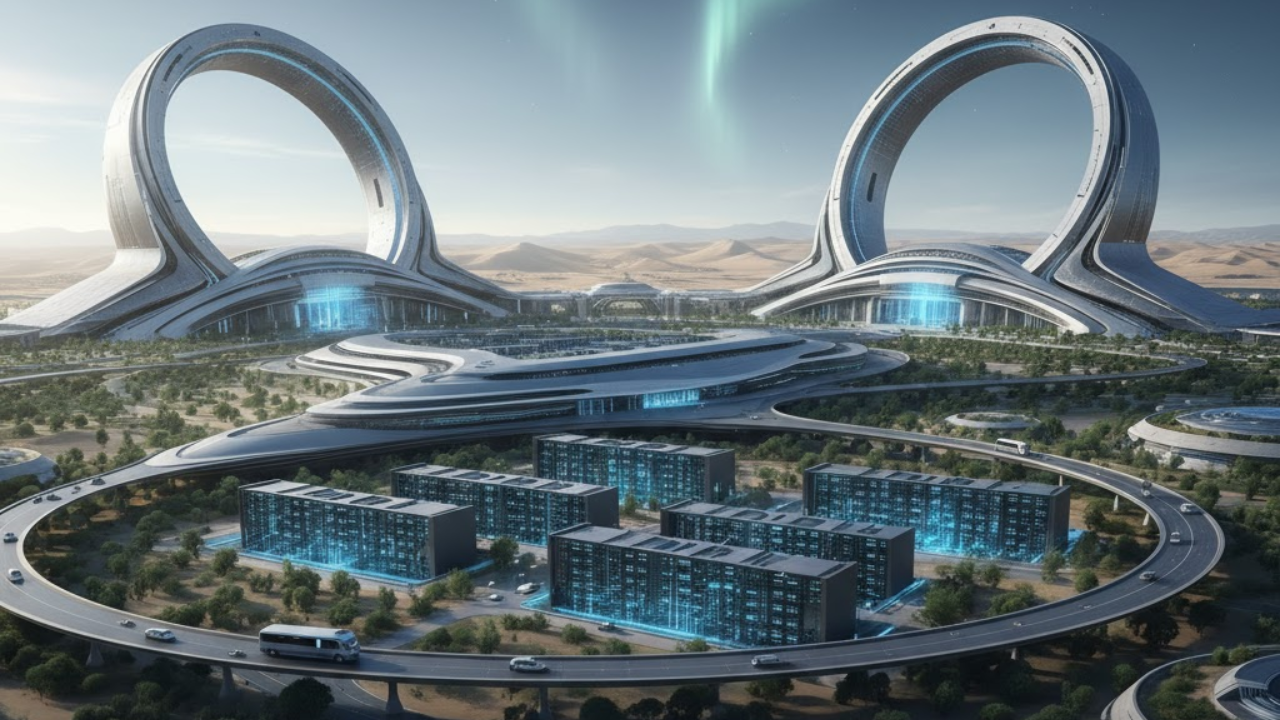
Spain & Italy Cruise to World Cup Qualifier Wins
Spain thrash Bulgaria 4-0 as Merino scores twice, while Italy secures playoff spot with 3-0 win over

The UAE is moving fast in the global AI infrastructure race. On 14 October 2025, G42, the Abu Dhabi–based cloud and AI firm, confirmed that the first 200 megawatts (MW) of its ambitious Stargate AI campus will be operational in 2026.
The Stargate campus is projected to scale up to 5 gigawatts (GW) and aims to be one of the largest AI data center hubs outside the United States. In addition to that core announcement, Cerebras Systems (an AI-chip firm) revealed plans to deploy infrastructure into the campus.
This development underscores the UAE’s ambition to become a central player in AI compute globally, support sovereign AI, and draw international technology investment into its digital infrastructure.
Stargate is a multi-gigawatt, multi-site AI and data center complex being developed in Abu Dhabi by G42, in collaboration with U.S. and global tech companies.
Its mission includes:
Hosting large AI model training and inference workloads
Empowering government and commercial entities in the UAE and region with high-end compute
Supporting data sovereignty, low-latency access, and scalable infrastructure
Attracting global tech firms and enabling regional AI ecosystems
The first phase (200 MW) is just the starting point toward a 5 GW design across multiple clusters and sites.
G42 has publicly stated that 200 MW will be commissioned in 2026 as the campus’s initial operational tranche.
Beyond that, further capacity expansions are under active discussion with hyperscalers and global cloud providers, but design and partnership terms are still being finalized.
Major global firms are already aligned with Stargate: Nvidia, OpenAI, Cisco, Oracle, SoftBank are among collaborators or proposed partners.
G42, the UAE’s cloud/AI conglomerate, leads the project. Its prior ties to Chinese technology firms have drawn scrutiny in U.S. circles, making export approvals and compliance a relevant concern.
Cerebras Systems, a U.S. AI chip company, also announced plans to deploy “megawatts worth” of its equipment in Stargate, competing with Nvidia in large model compute.
With this campus, the UAE is asserting itself not just as a consumer of AI but a provider of AI infrastructure. Shorter latency, local access, and compute capacity will help local government, startups, and enterprises build AI services without depending solely on overseas cloud facilities.
Operating a local AI campus ensures that sensitive computations, government models, or sovereign data can remain within UAE boundaries—critical for regulatory, security, and data privacy reasons.
Cloud giants and tech powers have large global compute footprints. By hosting significant capacity in the UAE, Stargate competes head-to-head for workloads in the MENA region, India, Africa, and beyond.
Deploying large-scale AI systems at 200 MW implies high-density design, cooling systems, power delivery, edge networking, and advanced chip deployment (e.g., high-performance AI accelerators). The infrastructure needs to support rapid model training/inference and scale-out compute demands.
Given G42’s previous links to Chinese technology consortia, U.S. regulators have expressed caution over the transfer of advanced AI chips and export rules. Securing compliance and aligning with U.S. tech controls is nontrivial.
A 5 GW AI campus will require massive power and cooling infrastructure. The UAE’s climate raises ambient heat and efficiency challenges. Managing power sources (solar, nuclear, gas) and water for cooling will be critical.
Deploying high-density server racks, networking, redundancy, fiber ingress/egress, and uptime guarantees across multiple nodes is technically demanding. Small errors in design propagate at scale.
While many tech names are aligned, formal contracts, responsibilities, and capital investment commitments may still be under negotiation. Delays in agreement finalization can stall buildout phases.
Cloud infrastructure is politically sensitive. Countries may pressure or restrict partnerships with national security implications. The UAE must balance openness with strategic safeguards.
Senior announcements of which hyperscalers or cloud providers sign firm contracts for subsequent GW phases
Technical details: server model adoption (Nvidia vs other accelerators), cooling strategy, power mix
Regulatory updates on export licenses, security approvals, and U.S.–UAE tech cooperation
The actual in-service performance of the initial 200 MW segment
Data center regional expansion: where additional clusters will be located
How regional competitors (Saudi Arabia, Qatar) respond with their AI / data infrastructure plans
Disclaimer
This article is for informational, educational, and journalistic purposes only. It does not constitute legal, investment, or technological advice. Readers should verify all technical and contractual claims via official statements from G42, UAE government, or involved tech firms.